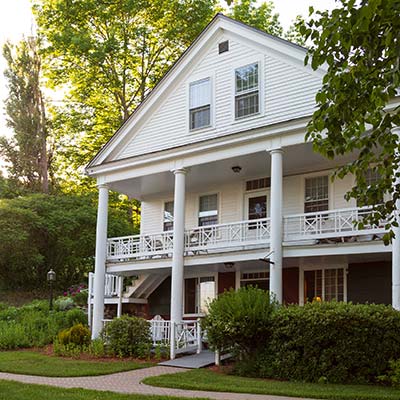by Peter Scherman of The B&B Team
You have been dreaming for years. Those glossy magazines and snazzy web sites with those wonderful, historic lodgings, glorious gardens, and inviting rooms are a regular mainstay. Your travels have taken you to places where you were greeted by strangers who treated you like old friends. You slept on feather quilts and abundant pillows, awakening to the aroma of fresh coffee and baked breads, then shared breakfast with others like yourselves: road warriors of the bed & breakfast circuit. You just love these quaint and ornate homes, the unfaltering hospitality, the sumptuous meals. After all, entertaining has always been a love of yours and you think, “We could do this!”
Cut to six months later: you’ve been talking to innkeepers about the Innkeeping lifestyle, and they told you it wouldn’t be easy. You attended one of those seminars, and they told you it wouldn’t be easy. You’ve been taking stock of what it would really mean to quit that job or take early retirement and live on an innkeeper’s “salary,” and now you realize it won’t be easy. But this is Innkeeping! You’ve always wanted to do this. It can’t be that bad, or why would so many take the plunge?
Good question. It’s a question that all prospective innkeepers must ask themselves. Just for a moment, let’s assume that you have satisfied yourself that you are, indeed, cut out for Innkeeping. You would like to be your own boss, even if your life will be guided by your guests. You can still decide to close for a week (if you plan ahead) to take a vacation. You can always be closed on Mondays if you want. You are prepared for the cut in income, figuring you can get by fairly modestly, and besides, you have a little something extra from wise investments or pensions. You’ve been checking out ads on countless web sites looking for the perfect bed & breakfast for sale, have actually received information and consider yourself to be actively “in the market.” Well, maybe a couple of years away. That’s OK. It’s better to plan ahead and know what you’re getting into.
You are really serious about buying an inn now, and you want to make an offer but need to figure out exactly how to finance the purchase. This is where the dream of owning a bed & breakfast can start to slip away unless you’ve done your homework and planned adequately. Because financing is where most contracts fall apart.
A bed & breakfast inn is a hybrid entity. Alas, it’s neither a “house” nor a “hotel.” If it were just a house you wanted to buy, a lender would look at your available cash for down payment and closing costs, would review your income and “other debt,” would work with certain ratios to determine how much of your income could be used to finance a home, and could tell you, within a very narrow range, how much you could afford to pay for a house. No furniture. No business. You keep your job. That assumes, of course, that the house appraises out for the purchase price and your credit is squeaky clean.
For a hotel or motel, or maybe a convenience store or other business, a lender will look at the business, will examine and analyze the cash flow, will determine the value based on actual and projected cash flows, will consider how much you can put down initially (they generally want 30% plus with reserves for operating capital, etc., though there are exceptions). If all of this pans out, and you can convince that lender that you know what you’re doing (past experience in the same business, hopefully) you might get the loan and be on your way.
But a bed & breakfast? What’s that? It’s a bit large as a home, a significant portion of which will be used for business. This, of course, creates some interesting tax considerations when applying your rollovers, but that’s another story. A bed & breakfast is typically very heavily weighted by the real estate component as opposed to the business component, where that convenience store is often just the opposite. Nevertheless, the dream B&B you’ve found may, in fact, have a fairly decent cash flow. If it does, there are a number of avenues you can pursue. The first, and by far the easiest (though hardly the most common), is owner, or seller, financing.
If an innkeeper has owned the inn for a number of years, especially if they converted it into a B&B from a house, they may have experienced a substantial amount of appreciation and have little or no debt. Often these owners are interested in moving on and will consider owner financing as a good investment. Like any lender, they will want to know your credit history, see a credit report, have a complete, certified financial statement from you, and will be confident that the cash flows from the business will cover debt service and living expenses on top of operations. However, don’t expect many sellers to finance 90% of the deal. Maybe you can buy a house with 5% or 10% down payment, but it’s unlikely that many innkeepers will finance that much. Keep in mind that, like a bank, security is paramount. You will be purchasing the real estate, the personal property (fixtures, furnishings, etc.) and probably will be paying for intangibles (good will) as well. Your initial investment will likely have to cover the intangibles, the personal property, and a substantial portion of the real estate. That can amount to a sizable outlay. You need to keep something in reserve for improvements you may want to make and to cover you in those slow early months.
Let’s say your seller doesn’t want to finance, and many don’t. They have other plans for their money. If the business is really solid and can be documented (current innkeepers take note!), the next best bet is often a local bank. Despite strict regulations about lending parameters, many bankers still take an interest in local ventures and, especially, real estate. If the loan is “non-conforming” but there is value in the property and a sufficiently large down payment to protect their investment, money may be forthcoming as a portfolio or “in-house” loan. An introduction to the local banker by the current innkeepers (if they’ve had a good relationship) can be a good way to get started, especially if there’s been any bank financing in the past.
If your intention is to acquire a full service inn with a restaurant, then the Small Business Administration (SBA) may be the best way to go. There are a number of banks and non-bank lenders who process SBA loans, some better than others, so shop around. Doug Carleton, who is an approved SBA lender and member of The B&B Team of Professionals, is one of the best. Remember two things above all else: restaurants have a very high failure rate, and most lenders are leery of making restaurant loans unless you have a track record to demonstrate your expertise. Also, SBA loans can be slow (depending on the bank) and expensive due to the SBA guarantee fees, so you need to be prepared for a process that may take six months and the expenditure of several thousand dollars in surveys, environmental studies, etc. Often times, however, the fees can be financed, and, if you are prepared and working with a good lender, the process can be expedited. Some SBA loans are assumable, so be sure to ask if the current owners have an SBA loan and look into its assumability.
As to bank financing, there are some lenders who will extend “no doc” (no documentation) loans. With 20%-40% down payment on the real estate, they will assume that you won’t walk away from the property, and if you do, their investment will be covered. How you pay for it, in their mind, is your problem. Please note that I said “real estate” not “bed & breakfast.” That down payment will apply to the appraised value of the real property, and you will have to pay for the personal property and intangibles separately. In the end, there’s still quite a lot of cash going out. [NOTE: since this article was written, “no-doc” loans are no longer available.]
You’re starting to feel depressed. You’ve exhausted the banks, the SBA lenders have turned you down, the owner owes too much to finance you (or just wants cash), but you really want to buy and the seller really wants to sell. What to do now? One possibility, and this is usually a last resort, is the use of an investment company that specializes in the purchase of mortgage notes. In reality what happens at closing is that the owner finances the sale. He simultaneously sells the note to an investor (for a discount), the original loan is paid off, the seller goes away with cash, and you own the property but will be making your payments to the new investor who holds the note. The best way to make this arrangement work is to plan ahead with a note investor so that the interest rates, the amounts paid, the size of the discounts, etc. can be juggled to reach a happy medium that works well enough for everyone. In these cases, most likely the buyer will have to pay a bit more, the seller will walk away with a bit less, and the investor will be very happy! But if it works, who’s to complain?
Needless to say, there are many ways to finance a bed & breakfast or country inn, but none of them is without problems. Almost all will require a sizeable capital investment up front. In every case the entire financial picture of the purchaser must be taken into account. Are there other assets? Is there independent income, either from investments or retirement? Will one of the purchasers be working an outside job or telecommuting? If you are working with a knowledgeable inn broker, be prepared to provide enough information that he or she can find a property that has the potential of meeting your personal and financial objectives. In the end, the best advice is to plan ahead, become informed, and be realistic. If you do, you’ll be happily on your way to Innkeeping! Good luck!





